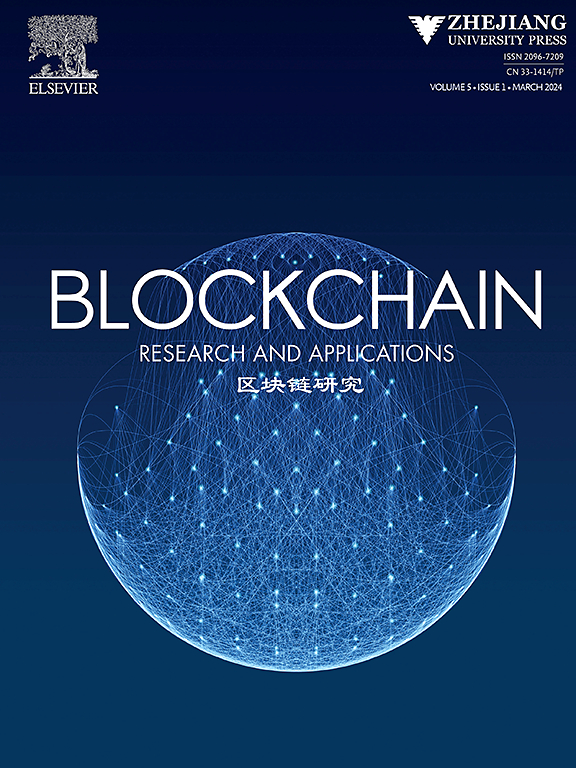πFL:基于区块链的联邦学习私有、原子、激励机制
IF 5.6
3区 计算机科学
Q1 COMPUTER SCIENCE, INFORMATION SYSTEMS
引用次数: 0
摘要
联邦学习(FL)基于多个客户端提供的高质量数据,然后使用这些数据来训练全局模型。为了促进客户提供高质量的数据,我们进行了大量的激励机制研究。这些研究集中在客户利益的分配上。然而,联邦学习的动机本质上是事务性的,事务的原子性问题还没有得到解决。此外,参与培训的个人客户的数据质量参差不齐,他们可能会因为担心隐私泄露而消极地参与培训。因此,我们在FL设置下提出了一个具有隐私保护的原子激励方案:πFL(隐私,原子,激励)。该方案基于Shapley估值、安全多方计算和智能合约,建立了更加可靠的训练环境。因此,它确保了每个客户的贡献都能得到准确的衡量和适当的奖励,提高了模型训练的准确性和效率,增强了FL系统的可持续性和可靠性。通过综合实验分析,证明了该机制的有效性。很明显,这种机制不仅保护了训练者的隐私,提供了原子训练奖励,而且提高了FL的模型性能,准确率至少提高了8%。本文章由计算机程序翻译,如有差异,请以英文原文为准。
πFL: Private, atomic, incentive mechanism for federated learning based on blockchain
Federated learning (FL) is predicated on the provision of high-quality data by multiple clients, which is then used to train global models. A plethora of incentive mechanism studies have been conducted with the objective of promoting the provision of high-quality data by clients. These studies have focused on the distribution of benefits to clients. However, the incentives of federated learning are transactional in nature, and the issue of the atomicity of transactions has not been addressed. Furthermore, the data quality of individual clients participating in training varies, and they may participate negatively in training out of privacy leakage concerns.
Consequently, we propose an inaugural atomistic incentive scheme with privacy preservation in the FL setting: πFL (privacy, atomic, incentive). This scheme establishes a more dependable training environment based on Shapley valuation, secure multi-party computation, and smart contracts. Consequently, it ensures that each client's contribution can be accurately measured and appropriately rewarded, improves the accuracy and efficiency of model training, and enhances the sustainability and reliability of the FL system. The efficacy of this mechanism has been demonstrated through comprehensive experimental analysis. It is evident that this mechanism not only protects the privacy of trainers and provides atomic training rewards but also improves the model performance of FL, with an accuracy improvement of at least 8%.
求助全文
通过发布文献求助,成功后即可免费获取论文全文。
去求助
来源期刊
CiteScore
11.30
自引率
3.60%
发文量
0
期刊介绍:
Blockchain: Research and Applications is an international, peer reviewed journal for researchers, engineers, and practitioners to present the latest advances and innovations in blockchain research. The journal publishes theoretical and applied papers in established and emerging areas of blockchain research to shape the future of blockchain technology.

 求助内容:
求助内容: 应助结果提醒方式:
应助结果提醒方式:


